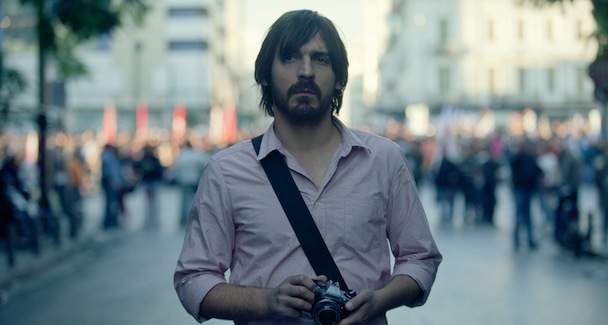Dead Europe
They said it would be unfilmable. The result is arguably one of the best Australian films in years.
Overview
They said Dead Europe would be unfilmable. As a novel, Dead Europe, written by Christos Tsiolkas in 2005, is dense, sprawling, and frequently horrifying. Yet a film version has been made, however challenging that may have been.
Dead Europe is the second feature film from Tony Krawitz, whose previous work includes Jewboy and the 2011 documentary The Tall Man, with a team of producers behind it whose resumes boast films such as Shame and Animal Kingdom. What is remarkable about it is that very few films deliver the same kind of visceral impact as Dead Europe, and even fewer deal with the generally abstract themes of memory, history, and commodity capitalism in a way that leaves you shaking when you leave the theatre. There have been few Australian films made like this one.
The film addresses the sins of the past, and the way in which we continue to be haunted by apocryphal stories we frequently refuse to acknowledge. The story sees Isaac (Ewen Leslie), the son of Greek migrant parents, return to Greece to scatter his father's ashes. He gets wasted, he has sex, and he observes the underbelly of Europe, a place haunted by the atrocities of the 20th century to such an extent that Isaac's own family's past slowly begins to torment him in the spectral form of Josef, a young boy played by The Road's Kodi Smit-McPhee.
The film is in part a psychological thriller — something akin to the heathen child of Rosemary's Baby and Lilya 4-Ever — with the audience never sure whether the presence haunting Isaac is real or simply a figment of his imagination. Yet it is also an unflinching view of Europe, and the ways in which people simply are not good to each other.
The problems with the film emerge if you've read the book. An adaptation of a novel is a tricky thing, because there is always some expectation that the filmmakers will attempt to maintain the integrity of the book. Yet the cinematic adaptation of Dead Europe is so far removed from the novel — in the changes to the plot, the setting, and the ending of the film — that it seems almost misleading to give it the same title. It says something very different to Tsiolkas's novel, and in that respect it would be best to think of the works as companion pieces. But as a stand-alone film, Dead Europe is beautiful, visceral, and utterly remarkable. It is arguably one of the best Australian films we've seen in recent years.
Read our interview with director Tony Krawitz here.





